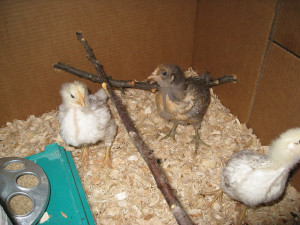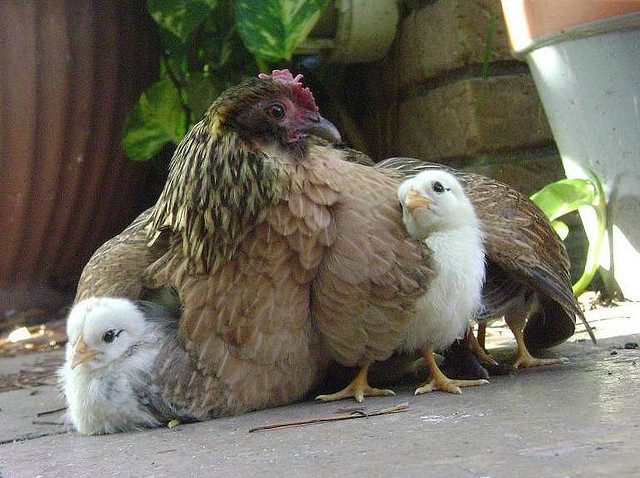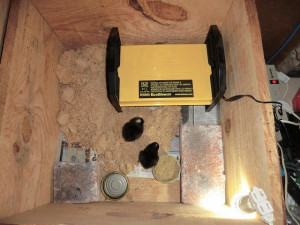Raising chicks is relatively simple and simply requires you to provide three key things for your chicks.
1. Warm clean housing
2. Plenty of food and water
3. Lots of love and attention.
About 24 hours after your chicks hatch or when they first arrive the first place they will call home is the brooder. The brooder is basically the equivalent of the nest in the case where the chicks are being cared for by a hen. It can be as simple as a box, enclosure or even a cat carry box.
The brooder should be lined with soft materials such as towels or blankets for the first few weeks (be careful of loose threads that small feet can get tangled in) and then changed for straw or pine shavings. Do not use slippery surfaces such as newspaper to line the brooder as it can result in the chicks having malformed legs.
It is very important to keep the chicks warm as they will require temperatures between 95 and 100 deg F. This can be achieved by using a heat lamp or a purpose designed radiant brooder (our recommendation).

Heat lamps are a low cost option but they do come with some safety risks of burns and also risk of fire if located inappropriately hence why our recommendation is to use a radiant panel style of brooder similar to the Brinsea Ecoglow brooder panel shown in the photo above. The heat source should be located down one end of the brooder to allow the chicks to move about and experience a range of temperatures.
Now that we have housing and warmth sorted we need to think about food and water.
You will need a good quality chick starter crumble (see our post on what to feed your chicken for more details) and something to feed them in such as a chick feeder or just a simple bowl that the chicks cannot tip over. Same for water.
At around 6 weeks of age they can move onto a pullet ration that has a slightly lower protein content until they are around 22 weeks of age or until they begin laying eggs.
With housing, warmth, food and water under control we need to think about some other practical issues.
At about 4 weeks of age you can introduce a low perch so the chicks can start to practice roosting.
Some chicks will also start to want to practice having dirt baths (a critical skill for managing parasites) so if you have space introduce a tray of dirt or sand and watch the chicks having fun.

Cleanliness is important to keep you chicks healthy so make sure you do regular housekeeping. Change their bedding regularly (at least daily) and make sure they always have clean food and water.
Last but not least, enjoy the experience and delight in watching your chicks grow. They grow very fast so enjoy it while it lasts because in no time you will be feeling that empty nest syndrome – but hey, to overcome the grief of your chicks growing up at least you have fresh eggs to look forward to (around week 22 for most breeds).



